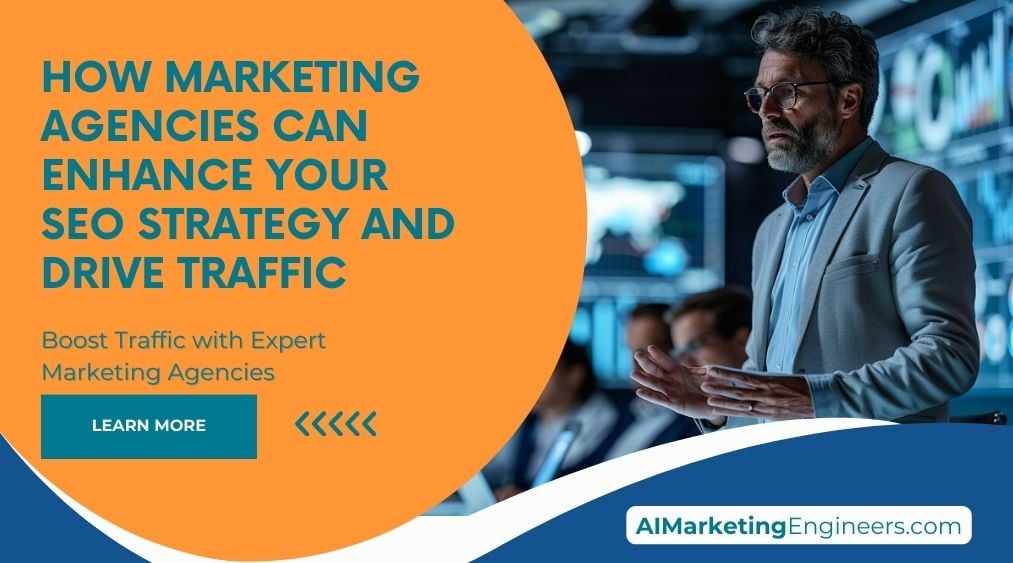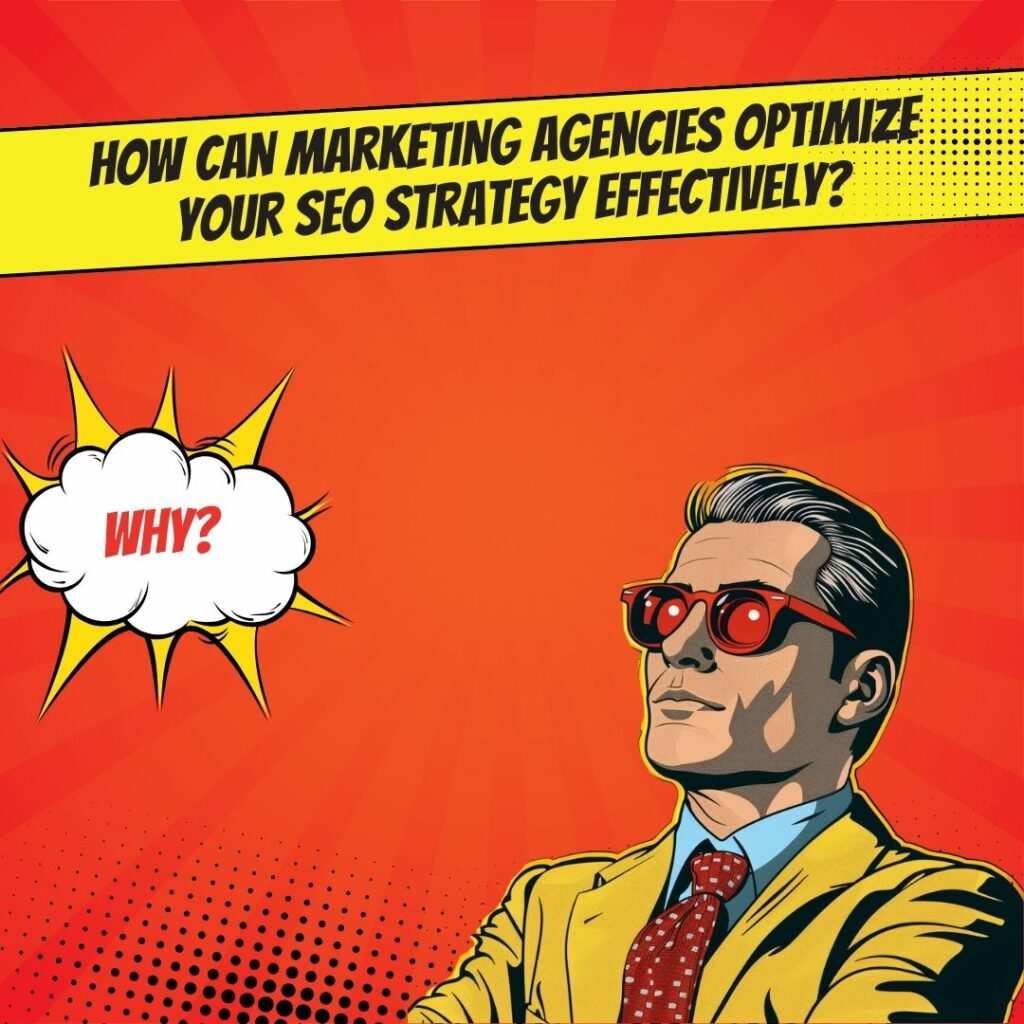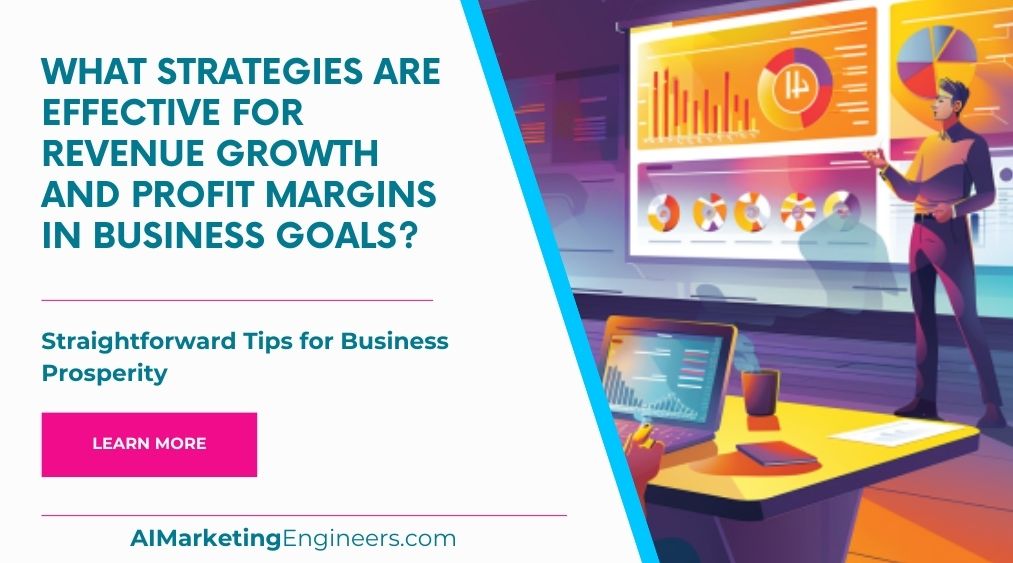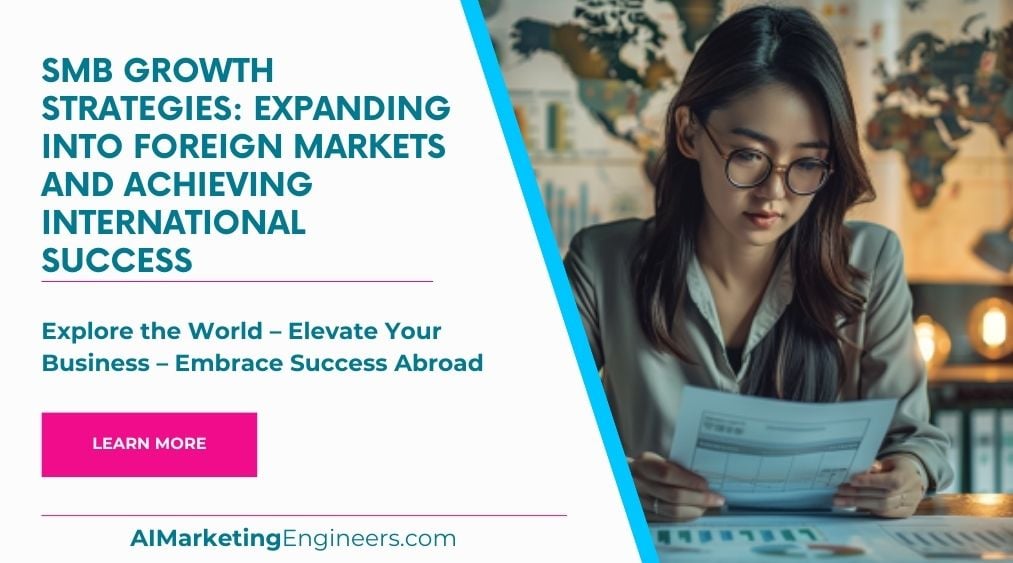Key Takeaways
✅ Expertise in Keyword Research and Optimization: Marketing agencies excel in identifying and optimizing long-tail keywords with low competition and high conversion rates, analyzing competitors, and enhancing on-page elements to improve search engine rankings.
✅ Technical SEO Audits and Optimization: Agencies specialize in conducting thorough technical SEO audits, fixing broken links, optimizing page speed and mobile responsiveness, and implementing schema markup to improve crawlability and search engine rankings.
✅ Content Creation and Link Building Strategies: Agencies develop engaging, high-quality content and deploy strategic link-building campaigns to boost traffic and establish your website as an industry authority.
Introduction
In the competitive digital landscape, having a robust SEO strategy is essential for driving traffic and improving your online presence. However, navigating the complexities of SEO can be challenging for businesses without specialized expertise. This is where marketing agencies come into play. By partnering with a marketing agency, you can leverage their extensive knowledge and resources to enhance your SEO efforts. These agencies stay up-to-date with the latest algorithm changes, industry trends, and best practices, ensuring that your strategy remains effective and compliant with search engine guidelines.
Marketing agencies offer a comprehensive approach to SEO, integrating it with other digital marketing tactics such as content marketing, social media, and pay-per-click advertising. This holistic strategy ensures that all aspects of your online presence are optimized, working together to drive more traffic and improve conversions. Additionally, agencies provide advanced analytics and reporting tools that offer valuable insights into your SEO performance, enabling you to make data-driven decisions and continuously refine your strategy. By partnering with a marketing agency, you can achieve higher search rankings, increased visibility, and sustainable growth for your business.
Top Statistics
| Top Statistics | Insight |
|---|---|
| 88% of marketers who already invest in SEO plan to allocate more or maintain the same amount in 2023. | This statistic highlights the strong commitment to SEO investment among marketers, showcasing its continuing importance in driving web traffic and visibility. |
| 68% of online experiences begin with a search engine. | Underlines the critical role that search engines play in initial online interactions, reinforcing the need for a solid SEO strategy to capture this traffic. |
| 63.41% of all US web traffic referrals come from Google. | Demonstrates the dominance of Google in driving web traffic, making it essential to prioritize Google optimization in SEO efforts. |
| SEO drives 1,000%+ more traffic than organic social media. | This stark contrast showcases the unparalleled effectiveness of SEO compared to social media, emphasizing the need for focused SEO strategies. |
| 39% of purchasers are influenced by a relevant search. | Highlights the direct impact of SEO on purchasing behavior, illustrating how targeted search optimization can drive conversions. |
Understanding the Importance of SEO
In today's digital world, SEO (Search Engine Optimization) is more than just a buzzword. It is a fundamental aspect of increasing a business's online visibility. According to recent studies, 93% of online experiences begin with a search engine, and around 75% of users never scroll past the first page of search results. These statistics highlight how crucial it is for businesses to rank well on search engines. Marketing agencies can be instrumental in enhancing your SEO strategy, increasing your online presence, and ultimately driving more traffic to your website.
Conducting a Comprehensive SEO Audit
An SEO audit is a thorough analysis of your website's current SEO performance. This process identifies technical issues, content gaps, and untapped keyword opportunities. By addressing these areas, you can significantly improve your site's search engine ranking. Marketing agencies offer expert analysis and actionable recommendations to optimize your website. Their experience can help pinpoint exact areas of improvement that might not be evident to a single in-house SEO specialist.
Developing a Customized SEO Strategy
Generic SEO strategies are often ineffective. A tailored approach aligned with your business goals is essential. Marketing agencies are adept at crafting customized SEO strategies that might include comprehensive keyword research, compelling content creation, and effective link-building tactics. For instance, if you're a local business, an agency can focus on local SEO to boost visibility within your community. These tailored strategies ensure that your SEO efforts are cohesive and effective.
Optimizing On-Page Elements
On-page optimization is crucial for improving search engine rankings. This involves optimizing meta tags, header tags, and content structure. Agencies ensure that these on-page elements are aligned with your target keywords and business goals. For example, a well-optimized meta description can increase click-through rates from search engine result pages. By refining these elements, marketing agencies help make your website more appealing to both search engines and users.
Building High-Quality Backlinks
Backlinks are still one of the most significant factors in SEO. High-quality backlinks from reputable sites can dramatically boost your site's authority. Marketing agencies employ various tactics such as content marketing and guest blogging to secure these valuable links. An example of a successful campaign might involve collaborative articles with industry influencers, benefiting all parties involved. This strategic backlinking can provide a substantial boost to your search engine rankings.
Measuring and Improving SEO Performance
Tracking and analyzing SEO metrics such as search engine rankings, organic traffic, and conversion rates is vital for ongoing success. Marketing agencies help set up these tracking systems and offer insights based on data. They use this information to provide continuous optimization of your SEO strategy. For example, if data shows that certain keywords are driving more conversions, they can adjust your strategy to focus more on those terms.
AI Marketing Engineers Recommendation
Recommendation 1: Perform Comprehensive Keyword Research Utilizing Updated Tools: Targeting the right keywords is crucial for directing relevant traffic to your website. Marketing agencies can employ current tools such as Ahrefs, SEMrush, or Google's Keyword Planner to identify high-traffic, low-competition keywords. According to a study by Ahrefs, 90.63% of pages get no organic search traffic from Google, underscoring the importance of effective keyword selection. Agencies should focus on long-tail keywords relevant to your industry to capture more specific and conversion-ready traffic.
Recommendation 2: Optimize for Voice Search Trends to Stay Ahead: With the rise of smart speakers and voice assistants, optimizing for voice search is no longer optional. By 2024, over 50% of all online searches are projected to be voice searches. Marketing agencies can enhance your SEO strategy by ensuring your content is conversational and answers direct questions users might ask their devices. This trend is supported by Google's AI-driven BERT update, which focuses on understanding the context of conversational search queries, making it essential for businesses to align their content accordingly.
Recommendation 3: Utilize AI-Driven Content Creation Tools for Efficiency: The advancements in AI can significantly boost your SEO strategy by streamlining content creation processes. Agencies can leverage tools like Jarvis.ai or Copy.ai to generate high-quality, SEO-optimized content quickly. These tools not only save time but also ensure that the content is tailored to target keywords and engages the audience effectively. A McKinsey report notes that AI adoption in marketing can increase business productivity by up to 40%, making these tools a practical addition to any SEO strategy.
Relevant Links
- Discover How AI Can Transform Your Marketing
- Unlock the Secrets to Impactful Campaign Goals and Marketing Objectives
- Master Campaign Reach and Audience Size for Market Penetration
- Analyze User Behavior for Strategic Marketing Decisions
Conclusion
Partnering with a marketing agency can significantly enhance your SEO strategy and drive more traffic to your website. Marketing agencies bring a wealth of expertise and resources that can be tailored to meet the specific needs of your business. They stay updated with the latest SEO trends and algorithm changes, ensuring that your strategy remains effective and compliant with search engine guidelines. By leveraging their knowledge and experience, you can achieve higher search rankings, increased visibility, and more qualified leads.
Moreover, marketing agencies provide a comprehensive approach to SEO, integrating it with other digital marketing efforts such as content marketing, social media, and pay-per-click advertising. This holistic strategy ensures that all aspects of your online presence are optimized and working together to drive traffic and conversions. Agencies also offer advanced analytics and reporting tools that provide valuable insights into your SEO performance, enabling you to make data-driven decisions and continuously improve your strategy.
Ultimately, collaborating with a marketing agency allows you to focus on your core business activities while benefiting from professional SEO services that enhance your online presence. This partnership can lead to sustainable growth, improved brand awareness, and a stronger competitive edge in the digital marketplace. By investing in a marketing agency, you are not only improving your SEO strategy but also setting the stage for long-term success and increased profitability.
FAQs
Question 1: What kind of strategy will your SEO team adapt to my niche/industry?
Answer: Ensure the agency understands your industry and can tailor a strategy to meet your specific needs.
Question 2: What is your approach to SEO and what work can I expect?
Answer: Look for a detailed explanation of their process, including technical audits, backlinking strategies, and content creation.
Question 3: What SEO areas will you optimize my site for?
Answer: Confirm that the agency will cover all relevant aspects of SEO, such as technical, on-page, and off-page optimization.
Question 4: How do you define success in SEO?
Answer: Ensure the agency's definition of success aligns with your goals, whether that's rankings, traffic, or conversions.
Question 5: What type of SEO reporting will you provide?
Answer: Expect regular, detailed reports on progress and results.
Question 6: What SEO tools do you use?
Answer: Familiarize yourself with the tools they use to ensure they are up-to-date and effective.
Question 7: How do you communicate with clients?
Answer: Ensure they have a clear communication plan in place, including regular updates and a dedicated point of contact.
Question 8: What is your pricing structure, and what services are included in your packages?
Answer: Understand the pricing model and what services are included to ensure you get the best value for your money.
Question 9: Do you offer any guarantees for achieving specific rankings or results?
Answer: Be wary of agencies promising specific results, as this can indicate unethical tactics.
Question 10: How do you measure the success of your campaigns?
Answer: Ensure the agency has a clear method for measuring success and can provide data to support their claims.
Academic References
- Campbell, K. S., & N. Hollingsworth, M. A. (2017). Search Engine Optimization and Business Communication Instruction: Interviews With Experts. Business and Professional Communication Quarterly, 80(2), 187-211. This study highlights the importance of SEO in business communication and its role in enhancing online visibility and credibility.
- Stephen, A. T., & Lamberton, C. (2013). The Role of Marketing in Digital Business Platforms. Journal of Interactive Marketing, 27(4), 242-256. This research emphasizes the significance of marketing strategies, including SEO, in digital business platforms to attract and engage target audiences.
- Järvinen, J., & Karjaluoto, H. (2015). Using Data Sciences in Digital Marketing: Framework, methods, and performance metrics. Journal of Business Research, 69(11), 4644-4651. This study explores the application of data sciences in digital marketing, including SEO, to measure performance and optimize marketing strategies.
- Feng, J., Bhargava, H. K., & Pennock, D. M. (2007). AKEGIS: automatic keyword generation for sponsored search advertising in online retailing. Information Systems Research, 18(1), 74-92. This research presents a framework for automatic keyword generation, which can be applied to SEO strategies to improve keyword selection and optimization.
- Yang, S., & Ghose, A. (2010). Competition and Crowd-Out for Brand Keywords in Sponsored Search. Marketing Science, 29(3), 478-491. This study examines the impact of competition on brand keywords in sponsored search and its implications for SEO strategies.
- Pan, B., Litvin, S. W., & O’Donnell, T. E. (2007). Evaluating state tourism websites using Search Engine Optimization tools. Tourism Management, 28(1), 261-273. This research evaluates the effectiveness of SEO tools in enhancing the online visibility of state tourism websites, highlighting the importance of SEO in digital marketing.
- Ghose, A., & Yang, S. (2009). Mobile searching versus online searching: differential effects of paid search keywords on direct and indirect sales. Journal of Management Information Systems, 25(4), 97-124. This study investigates the differences in the effects of paid search keywords on sales in mobile and online searches, providing insights for SEO strategies in various search environments.
- Grewal, D., Roggeveen, A. L., & Nordfält, J. (2017). Media channels and consumer purchasing decisions: a review and research agenda. Journal of Retailing, 93(1), 1-17. This research explores the role of media channels, including SEO, in influencing consumer purchasing decisions and driving traffic.












